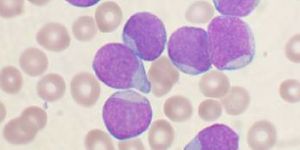Two Immune Cell Types Accidentally Promote Heart Disease
Prescribing drugs that lower “bad” cholesterol is a common approach to treating heart disease, but scientists from the Karolinska Institute think there may be another solution.
Atherosclerosis, a disease characterized by the development of plaques in blood vessels that impede blood flow, is a common marker of heart disease. Immune cells called T cells and dendritic cells are regular occupiers of atherosclerotic plaques, where a collection of these cells and other debris floating through blood vessels ultimately pack together and block the flow of oxygenated blood to the heart. By targeting these immune cells, Karolinska Institute scientists believe they could develop a method for treating heart disease completely separate from techniques focused on lowering low-density lipoprotein (LDL), AKA “bad” cholesterol.
The main “ingredient” of this new technique is a protein called PCSK9 (proprotein convertase subtilisin kexin 9). PCSK9 proteins degrade LDL receptors, which results in increased amounts of LDL. Thus, PCSK9 inhibitors are prescribed to lower LDL cholesterol. But there’s yet another use for PCSK9 inhibitors.
The scientists needed to find a way to inhibit immune cells promoting the formation of atherosclerotic plaques without suppressing the entire immune system. So, they needed to know what specifically activates the T cells and dendritic cells found in atherosclerotic plaques. They discovered two key players: PCSK9 and oxidized LDL.
When LDL becomes oxidized, a modification is made to the lipoprotein that promotes its interaction with and uptake by macrophages, making oxidized LDL a clear marker for cardiovascular disease.
Researchers collected T cells from carotid arteries from people with atherosclerosis and from healthy individuals. Dendritic cells were taken from human peripheral blood. They combined dendritic cells with oxidized LDL before adding in T cells.
They found that oxidized LDL both triggered production of PCSK9 proteins and induced dendritic cell maturation and T cell activation into helper cells. However, inhibiting PCSK9 reversed the effects.
“This changed a pro-inflammatory profile into an anti-inflammatory state that is potentially anti-atherosclerotic,” explained lead author Prof Johan Frostegård. “The benefits of PCSK9 inhibition extend beyond lowering LDL cholesterol.”
Source: Methods in Molecular Biology, European Society of Cardiology









